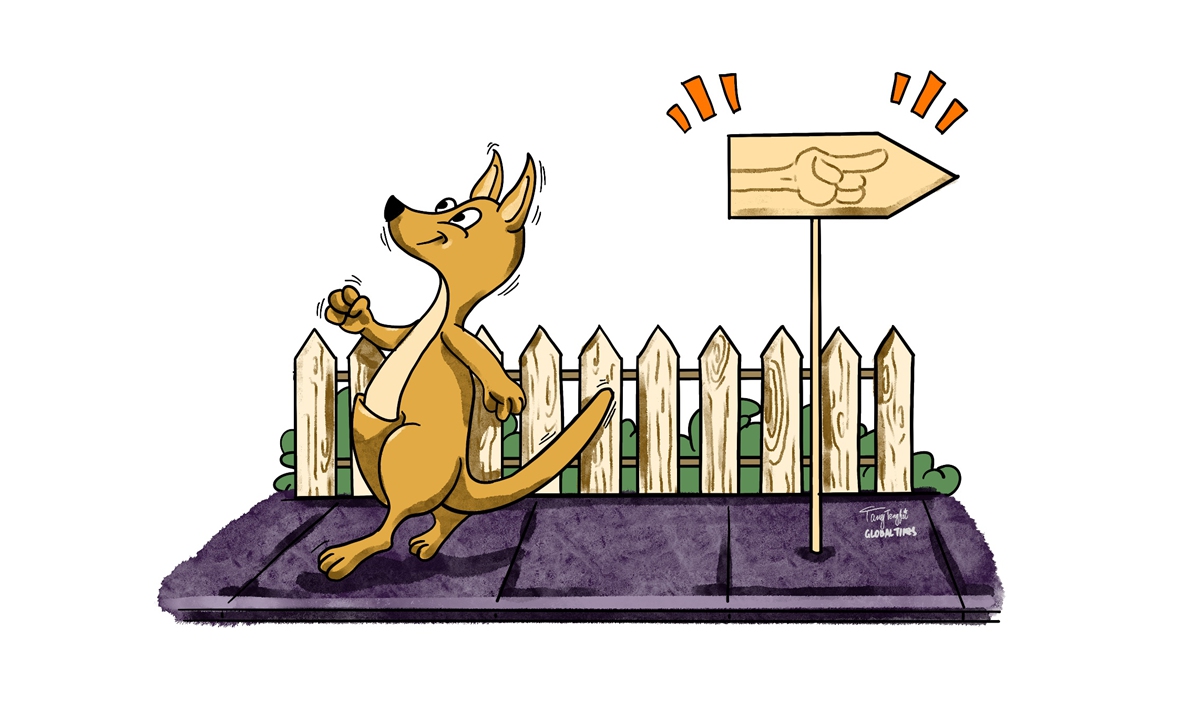
Illustration: Tang Tengfei/GT
Even during his tour which aims to strengthen Canberra's trading relationships with several Asia-Pacific countries, Australian Trade Minister Dan Tehan didn't forget to express in the media his patience toward mitigating trade disputes with China.
Australia wants to solve its disputes with China through dialogue, the trade minister told Nikkei Asia in an exclusive interview published on Sunday. "We have to remember out trading relationship with China is helping millions out of poverty in China. At the same time, it has helped us maintain our standard of living in Australia. So it's in both countries' interests that the economic partnership continue," Tehan said.
Amid constantly strained China-Australia political ties, it is not the first time that Australian officials have expressed similar hopes of maintaining or restoring strong trade ties with China. Yet, if they do have the sincerity in easing tensions between the two countries, they should at least show it by treating Chinese companies and investment fairly on the economic and trade front, instead of paying lip service to the media.
Maybe it is because some of the Australian politicians still lack a clear understanding when it comes to the dynamic of China-Australia trade. China contributes to more than 80 percent of Australia's trade surplus. By comparison, Australian exports to China accounted for merely 2.79 percent of China's total trade in the first half of this year, showed data from Chinese customs. In this sense, the Chinese market may be important for supporting the Australian economy, but there is no way that trade with Australia could be said to be lifting millions out of poverty in China.
To a certain extent, Canberra's arrogance in overestimating its role to the Chinese economy may explain their political leader's reluctance to acknowledge the sheer fact that Australia should take the full responsibility for the escalating deterioration of bilateral economic ties.
Australia was the first country to ban Chinese telecommunication giant Huawei from the 5G rollout on the grounds of national security, according to media reports. Since 2018, it has turned down a dozen Chinese investment projects. Early in January, Canberra killed an offer made by China State Construction Engineering Corporation to acquire Australian-based construction giant Probuild again on the grounds of national security. In April, the Australian federal government used an anti-China law to tear up agreements signed between the state of Victoria and China on the Belt and Road Initiative. Unless Canberra changes its course of action, or it would be highly questionable what dialogue can do to aid the current situation.
If anything, Canberra has fully displayed its hostility toward China by politicizing trade and investment issues and imposing discriminatory measures on Chinese companies, violating market principles and destroying the trust which formed the bedrock of China-Australia trade. Since China is the economy that is fully capable of withstanding the losses caused by trade tensions between the two countries, there is no reason or need for China to tolerate Australia provocative actions.
In this sense, the best way for Australia to work on the differences is to stop being hostile to China, and begin with treating Chinese companies fairly as a starting point.



